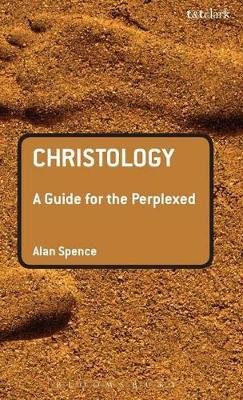Guides for the Perplexed
2 total works
Christology is an area hotly debated among New Testament scholars and Theologians. This new "Guide for the Perplexed" leads the reader through the arguments, debates and definitions to produce a fascinating guide to the subject.Christology, the study of the nature and person of Christ, is a confusing and complex subject for even the most advanced student. Hotly debated from the origins of the early church, the subject caused the first major schism with the Christian church.Today, Christology is of concern to both New Testament scholars and Theologians alike and continues to provoke debate within the Church. In this "Guide for the Perplexed", Alan Spence guides the reader through the maze of arguments to give a clear understanding of this subject. After an introduction providing a basic definition of Christology, Spence examines the key debates and defining moments in the early Church and the Reformation. This historical background provides an essential foundation on which to outline later developments in Christology.
Later chapters consider the Quest for the Historical Jesus, and the work of the major theologians in this area including Barth and Schleiermacher and from the present day, NT Wright and Pannenberg. Spence concludes by looking at contemporary arguments within the field of Christology.Continuum's "Guides for the Perplexed" are clear, concise and accessible introductions to thinkers, writers and subjects that students and readers can find especially challenging - or indeed downright bewildering. Concentrating specifically on what it is that makes the subject difficult to grasp, these books explain and explore key themes and ideas, guiding the reader towards a thorough understanding of demanding material.
Later chapters consider the Quest for the Historical Jesus, and the work of the major theologians in this area including Barth and Schleiermacher and from the present day, NT Wright and Pannenberg. Spence concludes by looking at contemporary arguments within the field of Christology.Continuum's "Guides for the Perplexed" are clear, concise and accessible introductions to thinkers, writers and subjects that students and readers can find especially challenging - or indeed downright bewildering. Concentrating specifically on what it is that makes the subject difficult to grasp, these books explain and explore key themes and ideas, guiding the reader towards a thorough understanding of demanding material.
This title provides an upper-level introduction to the doctrine of justification which triggered the Reformation and is still high up on the agenda in Ecumenical dialogue. The core of the book is an historical survey of the doctrine of justification as it has developed within the Western church - a somewhat simplified version of McGrath's Justitia Dei, but with a more outspoken assessment of the various moves that are taken at various stages in the discussion. Attention will is paid to the context or prevailing world view in which such a doctrine is deemed significant. Although the focus is on a number of principal theologians there are some reference to their peers or followers. Only at the end the Pauline texts are examined. The conclusion considers what part a doctrine of justification can have within a modern worldview in which the concept of divine judgement has generally been marginalised. Continuum's Guides for the Perplexed are clear, concise and accessible introductions to thinkers, writers and subjects that students and readers can find especially challenging - or indeed downright bewildering.
Concentrating specifically on what it is that makes the subject difficult to grasp, these books explain and explore key themes and ideas, guiding the reader towards a thorough understanding of demanding material.
Concentrating specifically on what it is that makes the subject difficult to grasp, these books explain and explore key themes and ideas, guiding the reader towards a thorough understanding of demanding material.

